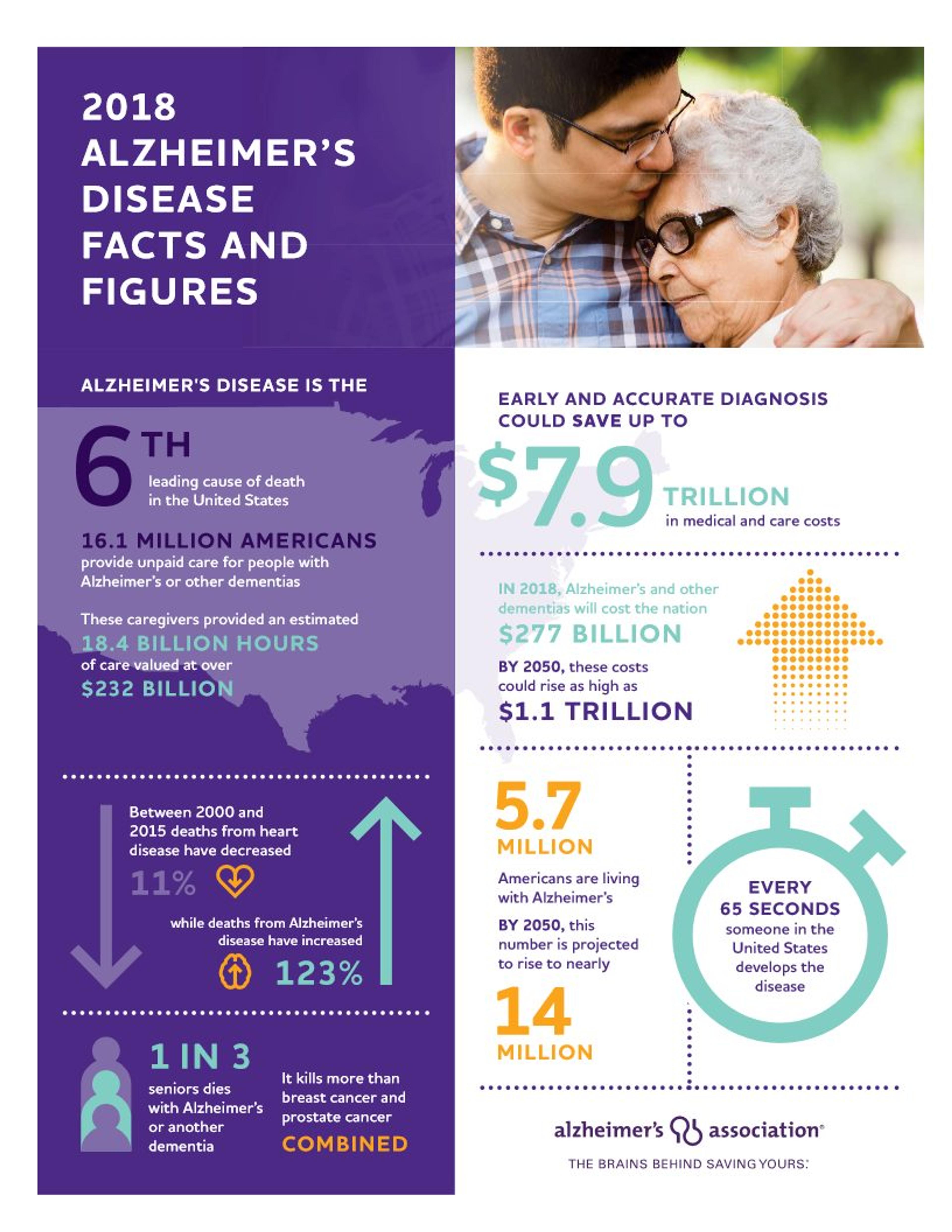Share the Facts and Join the Fight to End Alzheimer’s

Alexandria Iacobelli
| 2 min read

Science and research is always evolving with new discoveries and breakthroughs to help prevent premature death. The 2018 Alzheimer’s Facts and Figures report highlights new facts about the national prevalence, incidence, mortality, costs of care and caregiving information for those dealing with the effects of this terrible disease.
As of 2018, Alzheimer’s disease is the sixth leading cause of death in the United States. An estimated 5.7 million Americans are living with Alzheimer’s and this number is projected to rise to nearly 14 million by 2050.
With someone developing Alzheimer’s every 65 seconds in the United States, it’s important to understand the disease. Alzheimer’s disease is a degenerative brain disease and is the most common cause of dementia. Alzheimer’s progresses differently for every individual, but symptoms tend to develop slowly and worsen until they affect a person’s everyday activity. Common symptoms include difficulties with memory, language, problem-solving and other cognitive skills that cause confusion with familiar knowledge. These common symptoms of dementia account for an estimated 60 to 80 percent of all Alzheimer’s cases.
Revised guidelines for diagnosing Alzheimer’s disease identify three different stages of the sickness – one stage with dementia, a second with symptoms present and mild cognitive impairment and a third without symptoms known as pre-clinical Alzheimer’s disease. Future research will focus on finding which treatments can slow the progression of the disease and at which stage it will be most effective.
Providing care for someone with Alzheimer’s can be one of the most difficult jobs. Eighty-three percent of the help provided to elders in the U.S. comes from family members. It is estimated that these caregivers provided an estimated 18.4 billion hours of unpaid assistance in 2017. Caregivers often dismiss their own physical and mental health to take care of those with dementia. It’s necessary for caregivers to seek help of their own if they develop poor eating habits, sleep deprivation or are avoiding their own personal appointments.
New findings about Alzheimer’s disease makes it possible for doctors to accurately diagnosis the disease earlier than ever before. This not only helps individuals who are diagnosed, but also their caregivers and loved ones as well.
The Alzheimer’s Association’s 2018 report includes a wealth of information about the disease. Learn more here or check out this helpful infographic:

If you enjoyed this post, you might also like:
Photo Credit: pawpaw67





